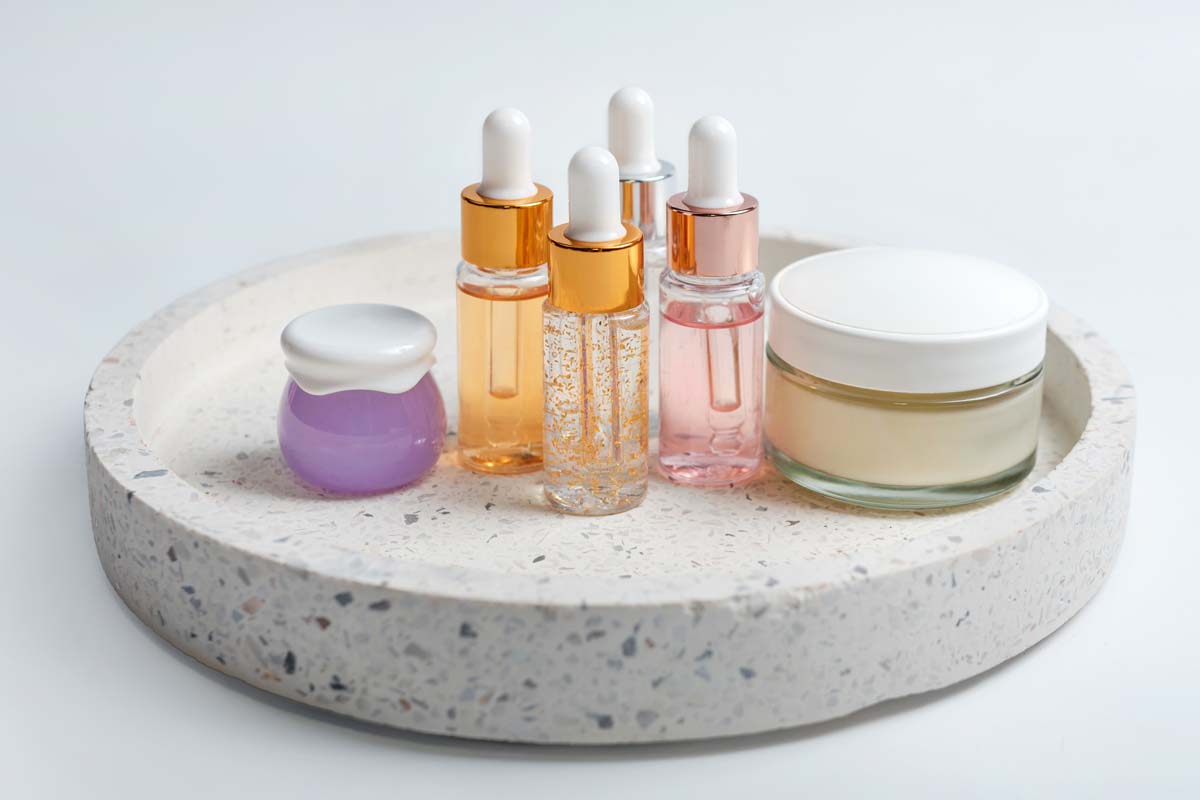
- September 21, 2022
- Comments: 0
- Posted by: admin

You might notice that you have dry, oily, or sensitive skin, but do you really know your skin type? Knowing your true Healthy Skin type can aid you the next time you’re in the cosmetics store. In fact, you might be applying the wrong products — or even famous because of the Internet — for your skin type could worsen acne, dryness, or other skin problems.
Doesn’t matter what your skin type is, daily skin care steps can help you keep up skin health and enhance specific concerns like acne, scarring, and dark spots. A daily skincare routine has four general steps you can do once in the morning and once before you sleep.
The Skincare Routine For Beginners
- Cleansing: pick a cleanser that doesn’t leave your skin tight after washing. Clean your face no more than twice a day, or just once, if you have dry skin and don’t wear makeup. Avoid rinsing for that deep clean feeling because that means your skin’s natural oils are gone. Cleansers known to work well for all known skin types.
- Serums: A serum with vitamin C or growth factors or oxidants would be better in the morning, under sunscreen. At night, retinol or prescription retinoids work best. Makeup Artist’s Choice has an effective vitamin C and E serum and retinol available.
- Moisturizer: Even oily skin needs lotions , but use one that is light, gel-based, and contains as less oil as possible, or doesn’t clog your pores. Dry skin may advantage from more cream-based lotions. Most companies will label their products as gel or cream on their box.
- Sunscreen: Apply sunscreen with at least 30 SPF, 10 minutes before heading out under the sun, as it takes a while for sunscreen to start working. Darker skin tones actually need more sun protection because hyper pigmentation is harder to correct. Try sunscreens, which offers broad-spectrum UVA/UVB protection and is suggested by the Skin Cancer Foundation
What’s Best For Your Skin Type?
Buy products that fit your skin type and sensitivity, and keep in mind to read the labels. Some products, such as retinol or prescription retinoids, should only be applied at night.
The most known and common skin types, and your might be one:
- Oily or acne-prone skin
- Dry skin
- Combination skin
- Sensitive skin
- Mature-looking skin
Results
Start with a common and easy routine to see how your skin reacts. Once you’re comfortable, you can then add more products such as exfoliants, masks, and spot treatments to enhance your skin’s health.
Pre-Patch-Test
And don’t forget to area test new products, especially if you fear you have sensitive skin. This can help you determine potential allergic reactions.
There are ways to avoid skin problems without irritating your skin. Just don’t forget the number one rule of skin care: Don’t pop or pull! Picking at acne, blackheads, scabs, or other skin problems can cause scars or darker skin spots known as hyper pigmentation. Scars and scabs can lead to infections, more acne, or hyperpigmentation. The deeper the scar, the more likely your skin will have a wound.
Blemishes, scars, and dark spots can take anywhere from a few weeks to six months to get better and fade. Quick treatment for scars and blemishes include using makeup and sunscreen to avoid further sun damage and hyper pigmentation.
